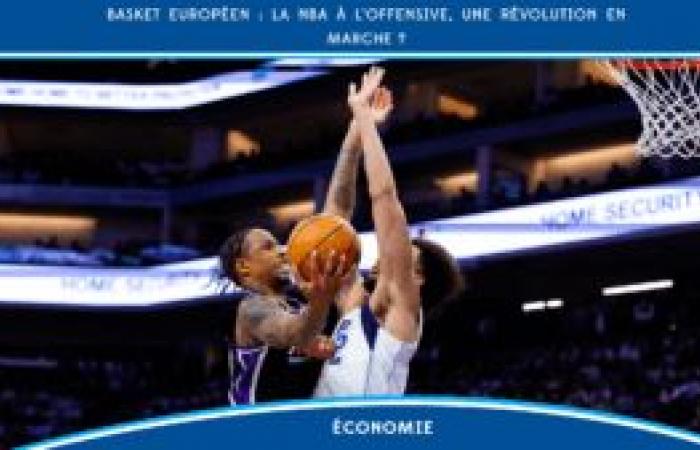This project is not trivial. It is part of a global NBA strategy: internationalizing its brand, extending its influence and maximizing its income. After Africa with the ball, Europe is the next target. According to several sources, the NBA assesses this new market-including the Middle East-at almost 3 billion euros per year.
The contrast is striking: in North America, the NBA secured TV rights of around 73 billion euros over 11 years (2025-2036). In Europe, the Euroligue is struggling to sign with major broadcasters and sees its clubs chaining the deficit exercises, despite a record crowd this season (10,383 spectators on average per game).
The NBA VS model the Eurogeneous model
The North American League is considering an almost closed structure: 12 permanent franchises, 4 rotating places, and an entry ticket to $ 500 million, according to Sporty. The objective? Offer a clear, stable product, calibrated for television and investors.
Conversely, the Euroligue remains partially open, with 18 teams, 13 of which are permanent shareholder members. Created in 2000 by the big clubs wishing to leave the Fiba fold, it wants to be more meritocratic … but less profitable.
football clubs in the viewfinder
To set up its European League, the NBA does not want to start from scratch. She seeks to convey herself to large sports brands already established, especially in football. Several clubs were reportedly surveyed, including Manchester City, Arsenal, PSG, which even confirmed “interest” for the project. Real Madrid, FC Barcelona or Fenerbahçe, all omnisport clubs with a high -level basketball section, are a natural relay.
The reaction of the Euroligue: between defense and opening
The ECA, the commercial structure of the Euroligue, described the initiative as “threat”, while indicating to remain open to dialogue. The IMG agency, a long -standing partner, saw its contract renewed until 2036, but all clubs have not yet secured their participation license, due to June 2026.
Some leaders such as Tony Parker, boss of ASVEL and shareholder of the Euroligue, campaign for a merger or a form of cooperation. The alternative to frontal confrontation is not excluded.
The impact on players and fans
Behind this economic war, it is also the players and fans that are concerned. A high -level player in Europe can already play up to 90 games per season, accumulating Euroligue, national championship and international competitions. A physical and mental overload that several stars no longer hesitate to denounce.
Kevin Durant, one of the faces of the NBA, recently prevailed after the criticisms of the new format of the All-star Game 2025:
“I think it is more fun to complain about the NBA than to look at it. It’s crazy, cancel the all-star weekend and give everyone a break since we are so unhappy at that time … There is nothing good enough for fans at the moment. What does it need? A three -for -three tournament? These words illustrate an increasing fracture between public expectations, leagues’ initiatives and the daily life of players.
Another useful testimony: that of Luka Dončić, past from Real Madrid to the NBA:
“In Europe, each possession is a war. In the NBA, the game is freer. These are two worlds. »»
A table to compare better
| Criteria | NBA | Euroligue |
| Number of teams | 30 | 18 |
| Format | Closed league | Semi-farmed (13 permanent clubs) |
| Match by season | 82 + playoffs | 34 + playoffs + championnat national |
| Budget means of par club | ≈ 150 M€ | Between 10 and 45 M € |
| Annual TV rights | ≈ € 6.9 billion (USA) | IMG contracts, low audiences excluding platforms |
| Entrance ticket of a franchise | 500 m $ esteem | No official entry rights |
| Broadcasting in France | NBA League Pass, beIN, DAZN | Skweek, local channels |
The addition of a fifth continental competition, in addition to the Euroligue, Eurocoupe, the Champions Fiba League and the European Cup, risks moving fans more. Who plays what? When ? How importantly? It is one of the dangers of a fragmented system, where each instance draws the cover.
Towards a historical turning point?
Three scenarios are emerging:
- Direct confrontationwith the risk of a break -up of the European landscape.
- Merger or partnershipas desired by certain influential actors.
- A failure of the NBA projectif clubs or broadcasters do not adhere.
One thing is certain: European basketball is at the crossroads. The American model fascinates, but he questions. And for the first time, it is no longer a choc Cultures, but a real battle of influence, with a single playground: Europe.








